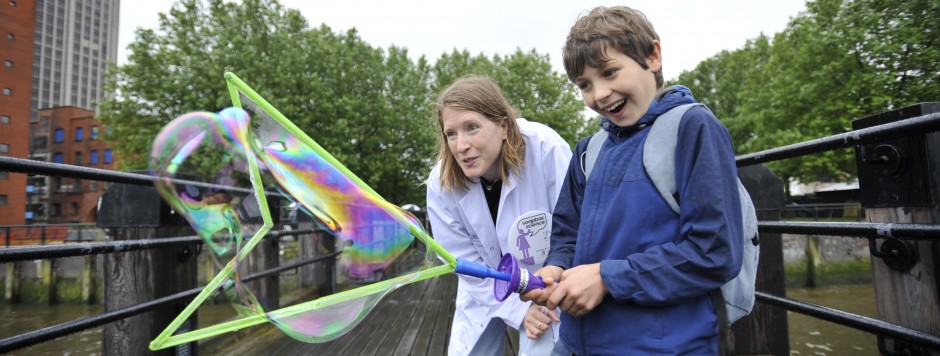 Francesca D. Ciccarelli is Associate Professor at King’s College London and Group Leader at The Francis Crick Institute. Her research aims to understand the role of genetic alterations in human cancer using a combination of computational and experimental approaches. You can catch Francesca on her soapbox on the 27th of May in London, with a talk called: “Using computers to study patient genomes and select the best cancer treatment”
Francesca D. Ciccarelli is Associate Professor at King’s College London and Group Leader at The Francis Crick Institute. Her research aims to understand the role of genetic alterations in human cancer using a combination of computational and experimental approaches. You can catch Francesca on her soapbox on the 27th of May in London, with a talk called: “Using computers to study patient genomes and select the best cancer treatment”
SS: How did you get your current position?
FC: Passion, serendipity and luck. I knew I wanted to be a scientist very early on, although had no idea what that really meant… After my Master’s in Pharmaceutical Chemistry I had no strategy on how to pursue a career in research. So, I simply went for what intrigued me and had the great luck to end up working with one of the pioneers of computational biology at the EMBL in Germany. I totally fell in love with the possibility of tracing back the relationships between species by comparing their genomes: I could ‘see’ evolution at work! When I established my own research group, first in Milan and then in London, we started to study how the genome of cancer cells differs from that of healthy cells and how it evolves in time and space. This has enormous therapeutic potential, because the cancer-specific differences can be exploited to hit cancer cells selectively.
SS: What, or who, inspired you to get a career in science?
FC: My first role model was my chemistry teacher in secondary school, who was a very elegant woman. I loved the deep respect she had for her job and quite enjoyed the fact that she challenged us constantly. I have always had a true fascination for clever and passionate people and luckily enough have met several of them throughout my career. They are a continuous source of inspiration.
SS: What is the most fascinating aspect of your research/ work?
FC: There are two aspects that I love about science. The first is that truth is not set in stone but evolves with knowledge. This gives a sense of extreme freedom. The second is creativity. Because science is about understanding the unknown, you have to be open and think out of the box all the time. And this is so much fun!
SS: What attracted you to Soapbox Science in the first place?
FC: I watched a few videos and I thought this was different from anything I had done before…
SS: Sum up in one word your expectations for the day
FC: Curiosity
SS: If you could change one thing about the scientific culture right now what would it be?
FC: Science- and in particular biomedical research- can be very expensive and not enough resources are devoted to it. Sadly, this reduces the freedom to embark on risky projects that could have a ground-breaking impact on people’s health.
SS: What would your top recommendation be to a woman studying for a PHD and considering pursuing a career in academia?
FC: Go for what you really love and take this as the greatest opportunity. Science is hard work and you can succeed only with commitment, resilience, perseverance and lots of passion.
